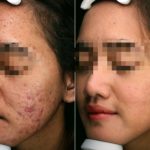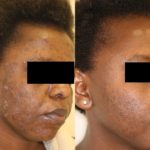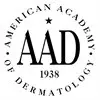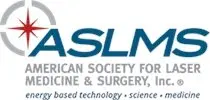Acne in Washington, DC
What Causes Acne?
Traditional Acne Treatments
Treatment for acne is generally tailored to the type of acne and the severity of the disease. Keeping in mind that both excessive oil and a type of bacteria are the cause of acne, most treatments aim to lower the production of oil, reduce the amount of P. Acnes bacteria on the skin surface, and prevent the blockage of hair follicles that leads to comedones (whiteheads). Common first-line therapies for mild acne include over the counter salicylic acid washes along with benzoyl peroxide wash or prescriptions sulfur washes. The other first line and mainstay of nearly all acne regimens is a topical retinoid. Topical retinoids such as Tretinoin (Retin-A), Adapalene (Differin), and Tazorotene (Tazorac), provide a controlled increase in skin turnover/exfoliation, reducing whitehead and blackhead formation, with a secondary effect of reducing oil production from oil glands. Patients with inflammatory acne (pustules and cysts) may benefit from short (3 month) course of oral antibiotics such as Doxycycline or Minocycline which work from the inside out to reduce inflammatory acne and allow topical medications time to work.
Accutane Treatment
Accutane (Isotretinoin) has been in widespread use for over thirty years and is a remarkably effective treatment for cases of severe nodulocystic scarring acne and moderate acne which does not respond to traditional therapies. Accutane is a Vitamin A derivative that has several effects on the skin, the most prominent of which is a nearly complete shutdown of oil production in the sebaceous glands during the treatment period, resulting in a long-lasting and in most cases permanent reduction in oil gland size and oil production. As acne is primarily an oil-driven disorder, this effectively reduces the acne producing potential of skin. Other effects include a reduction in the formation of clogged pores and a decrease in the prevalence of P. Acnes bacteria on the skin. A 5-6 month course of Accutane usually results in dramatic and long-lasting clearing of acne. While there have been many articles warning of potential dangers of accutane, nearly all of the attorney driven ‘risks’ of accutane have been disproven by huge meta-studies spanning multiple decades. To date, studies have not shown any association between accutane therapy and depression, suicide, or inflammatory bowel disease. In our experience accutane is an incredibly safe and effective drug and is a life-altering treatment for both adolescents and adults suffering from severe or treatment-resistant acne.
Adult Male Acne
While acne is most common in the adolescent population, over 50% of people will suffer from acne at some period during adulthood. While adult acne is generally milder than adolescent acne, it can be distressing and embarrassing. Male adult acne is treated similarly to adolescent acne, and normally topical agents are sufficient to control male adult acne.
Adult Female Acne
In women, adult acne is due to the cyclical hormone fluctuations corresponding to the menstrual cycle. This often affects women in their mid 20’s to mid 30’s with a characteristic pattern of acne lesions along the jawline and chin. Women with adult hormonal acne can benefit from both oral contraceptive pills, which regulate hormone production, as well as the prescription drug spironolactone, a medication that buffers and reduces the effects of androgen hormones on oil glands. Compared to many topical medications that are harsh on the skin and ineffective for adult hormonal acne, spironolactone is very well tolerated and has rapidly become an incredibly valuable tool in the treatment of adult female acne.
In short, there are many different acne treatments available. Each case is unique and therapy should be tailored to each individual patient. It is very common to use the treatment modalities in combination. Medication compliance and periodic reevaluation nearly ensures satisfactory results.
For concerns with acne scarring, The Center for Laser Surgery also offers acne scar treatments specifically for patients with acne scars. We highly recommend complete medical control of acne before pursuing scar reduction treatments.







